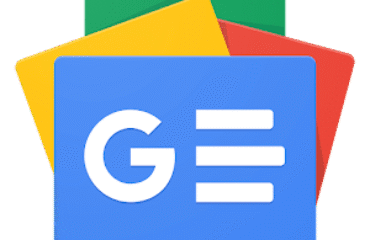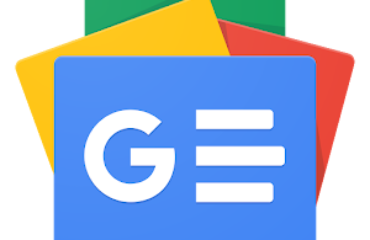
Register for your free TechRepublic membership or if you are already a member, sign in using your preferred method below.
We recently updated our Terms and Conditions for TechRepublic Premium. By clicking continue, you agree to these updated terms.
Invalid email/username and password combination supplied.
An email has been sent to you with instructions on how to reset your password.
By registering, you agree to the Terms of Use and acknowledge the data practices outlined in the Privacy Policy.
You will also receive a complimentary subscription to TechRepublic’s News and Special Offers newsletter and the Top Story of the Day newsletter. You may unsubscribe from these newsletters at any time.
All fields are required. Username must be unique. Password must be a minimum of 6 characters and have any 3 of the 4 items: a number (0 through 9), a special character (such as !, $, #, %), an uppercase character (A through Z) or a lowercase (a through z) character (no spaces).
Notion vs Trello: Project management software comparison
Your email has been sent
If your company is considering which project management and communication tool to choose, you should compare the features of Notion and Trello.
Project management can quickly become complicated waters to navigate, especially as your projects and company grow. Not only will you have more projects to tackle, but you’ll also have more stakeholders at work to make them happen. As those numbers increase, you need the right project management tools to keep the work flowing and deadlines on target.
SEE: Hiring kit: Project manager (TechRepublic Premium)
To complicate matters, the number of available tools and services to help you manage those projects and documents is staggering. Where do you turn? Which service do you use? Do you go kanban, Gantt, Wiki, tasks, calendars or a combination?
When you start your search for the right project management software, you are bound to come across both Notion and Trello. These two project management platforms share quite a bit of overlap, but Trello and Notion are also quite different. Which one of these services is right for your company. Let’s dig in and find out.
Jump to:
Notion is a project management and document management platform designed to help your teams to collaborate with tools to coordinate deadlines, objectives and assignments. Within a single workspace, your teams can think, write, plan, capture thoughts, manage projects and run departments. With tools like kanban boards (Figure A), workspaces, meeting notes, docs, tasks, assignments and calendars, Notion might well be the perfect platform for any team looking to merge document management and project management.
Figure A
Trello might not be one of the most popular workflow management tools on the market, but it certainly can compete with the competition by offering all the features you need in a simple-to-use, modern interface (Figure B). Trello offers workspaces, kanban, timelines, tables, calendars, dashboards, maps, templates, filters, automation and Powerups to add new features.
Figure B
If there’s one buzzword that deserves its time in the limelight, it’s workflow. When you have an efficient and smooth workflow, project management becomes a thing of ease. Between these two, Trello has a leg up on workflow, simply by sticking with a layout that makes it easy to move between the different (yet tightly interconnected) tools. With an interface that makes it very easy to not only switch between those tools but to see how integrated they are gives Trello a slight advantage.
However – and this is a big “however” – Notion offers a more complete package for teams to collaborate. For example, Notion includes added features that combine to make for a more complete workflow. Start with meetings, work those into documents, create tasks based on the documents, build boards to manage the tasks, assign tasks and then keep track of it all in a calendar view. That’s a complete workflow that would benefit nearly any team.
Although Notion does split its time between project and document management, the project management aspect of the service is as strong as many others in the field. However, for straight-up project management, Trello pulls ahead by adding just the right collection of features most teams are accustomed to using.
Another advantage Trello has is the interface. Although Notion does make it easy to switch between features, the layout is rather old-school and can sometimes feel more like a Wiki on steroids than a true project management suite.
I’m going to have to give Notion the advantage in the collaboration arena. Although Trello does offer plenty of powerful collaboration tools, the second you start working with Notion you immediately understand this platform is all about collaboration. From meeting notes, to documents, to assignments, and the ability to connect a workspace to a Slack channel, Notion offers plenty of collaboration options. Once you’ve added team members, you can then add them as stakeholders to various items. Those stakeholders will automatically send emails on additions and updates.
That doesn’t mean Trello misses out on collaboration options. For instance, you can share an entire board or a single card with team members and even invite non-members to join in on the collaboration.
Notion and Trello offer plenty of templates to make creating project management spaces easy. Trello offers templates for things like one-on-one meeting agendas, agile boards, company overviews, design huddles, go-to-market strategy, kanban, mise-en-place productivity, project management, remote team meetings and more. Notion categorizes its templates by purpose, such as design, student, engineering, human resources, marketing, personal, product management, sales and support.
Although both services approach templates very differently, they simplify the process of creating new assets from scratch.
If I had to make a choice, the win would go to Trello because the modern interface will be much easier for new team members to get up to speed with. That doesn’t discount Notion, but the Wiki-like UI might put off some project members who are more accustomed to mobile interfaces with easy drag-and-drop assets.
Subscribe to TechRepublic’s How To Make Tech Work on YouTube for all the latest tech advice for business pros from Jack Wallen.
Discover the secrets to IT leadership success with these tips on project management, budgets, and dealing with day-to-day challenges.
Notion vs Trello: Project management software comparison
Your email has been sent
Your message has been sent
TechRepublic Premium content helps you solve your toughest IT issues and jump-start your career or next project.
Windows 11 gets an annual update on September 20 plus monthly extra features. In enterprises, IT can choose when to roll those out.
Edge AI offers opportunities for multiple applications. See what organizations are doing to incorporate it today and going forward.
This is a complete guide for Apple’s iPadOS. Find out more about iPadOS 16, supported devices, release dates and key features with our cheat sheet.
Discover data intelligence solutions for big data processing and automation. Read more to explore your options.
Whether you are a Microsoft Excel beginner or an advanced user, you’ll benefit from these step-by-step tutorials.
Edge computing is an architecture intended to reduce latency and open up new applications. The terms around it can be fluid, but are helpful to know. From the glossary’s introduction: Edge computing is an architecture which delivers computing capabilities near the site where the data is used or near a data source. In an idealized …
This document helps make sure that you address data governance practices for an efficient, comprehensive approach to data management. This checklist from TechRepublic Premium includes: an introduction to data governance, a data governance checklist and how to manage a data governance checklist. From this checklist’s introduction: Data governance is the process by which an organization …
Recruiting a Scrum Master with the right combination of technical expertise and experience will require a comprehensive screening process. This hiring kit provides a customizable framework your business can use to find, recruit and ultimately hire the right person for the job. This hiring kit from TechRepublic Premium includes a job description, sample interview questions …
Knowing the terminology associated with Web 3.0 is going to be vital to every IT administrator, developer, network engineer, manager and decision maker in business. This quick glossary will introduce and explain concepts and terms vital to understanding Web 3.0 and the technology that drives and supports it.




